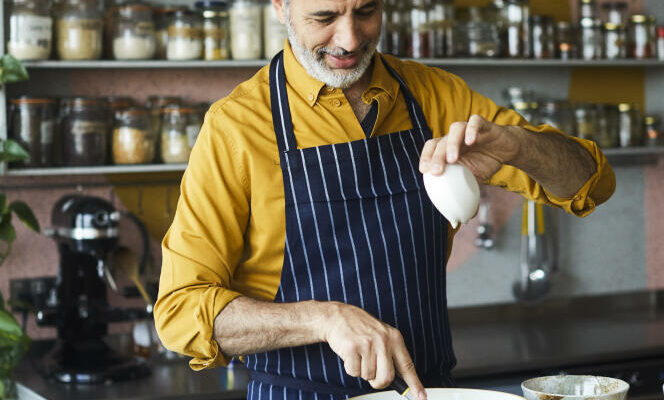How can we continue to talk about cooking when the news brings back otherwise tragic subjects? Yotam Ottolenghi had planned a Paris tour in mid-October to accompany the reissue of one of his bestsellers, Jerusalem (Hachette, 2013), co-written with Sami Tamimi. This ten-year anniversary of uninterrupted success in bookstores, marked by the collaboration between two chefs, one from the Jewish part of Jerusalem, the other of the Palestinian part, could have been a great celebration bringing hope. Especially since the approach of the entrepreneur living in London, where he is at the head of seven restaurants rather expensive (between 20 and 50 euros per dish), has always been about dialoguing with other cultures through gastronomy. He offers a borrowed cuisine that draws on the kitchens of the Middle East but also of Italy, India or California and explains that he systematically gives the context of his recipes (their origins, the person who inspired them) in short paragraphs of presentation, so as not to be accused of cultural appropriation.
Hamas’s October 7 terrorist attack on Israel cast a dark pall over the leader’s tour. Yotam Ottolenghi, who very rarely speaks on political subjects, first published a post on Instagram, explaining his fear for his family and loved ones living in Israel. Its public signing session scheduled for October 12 in the Le Bon Marché Rive Gauche department store was canceled for security reasons. And during a press conference the next day, he spoke again on the subject (against the advice of his communications department), deploring the victims on each side, and the turning point “diabolical”inhuman, taken by Hamas.
If the timing of this reissue was unfortunate, reading Jerusalem seems more recommendable than ever. More than a simple compilation of recipes, this four-handed work allows us to understand the city from the inside, through its cultural entanglement and its community passions. The table appears, finally, as one of the last spaces of reconciliation.
The success of Jerusalem Did he surprise you?
It surprised me enormously and continues to surprise me every year! However, when writing it, I foresaw that this book would appeal to many people, because I felt a kind of magic while working on it. We tried to go beyond the surface of things, to tell stories, that of the immigrant Jewish community of Georgia, that of the pastries of Nablus… We often have to dig deeper to understand the cultures, the individual experiences that take place. hide behind this or that dish. And I think today we need that context. If you are only looking for recipes, all you have to do is search online, the Internet is full of them.
You have 70% of this article left to read. The rest is reserved for subscribers.
